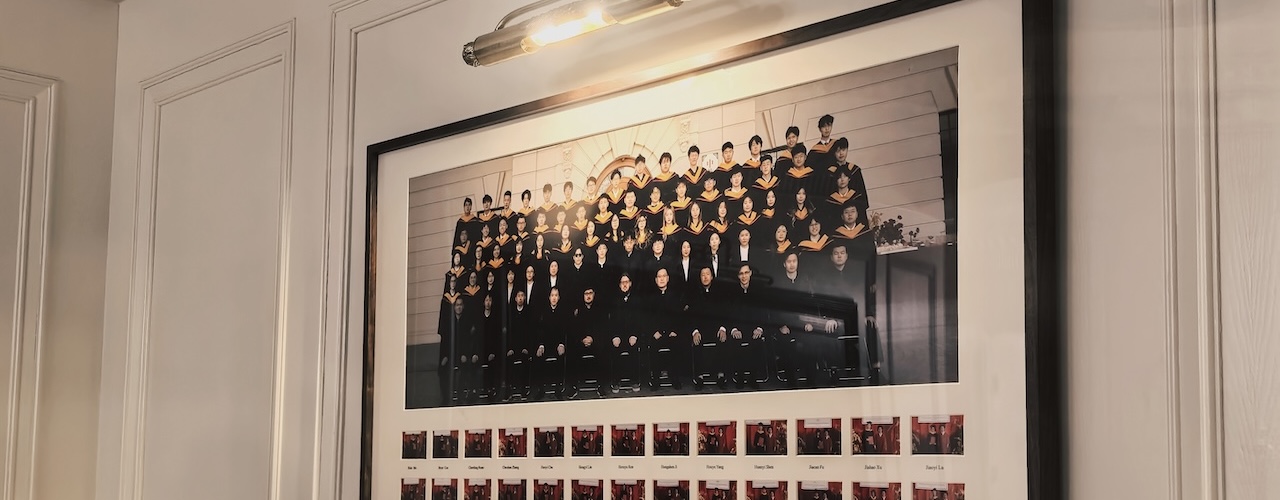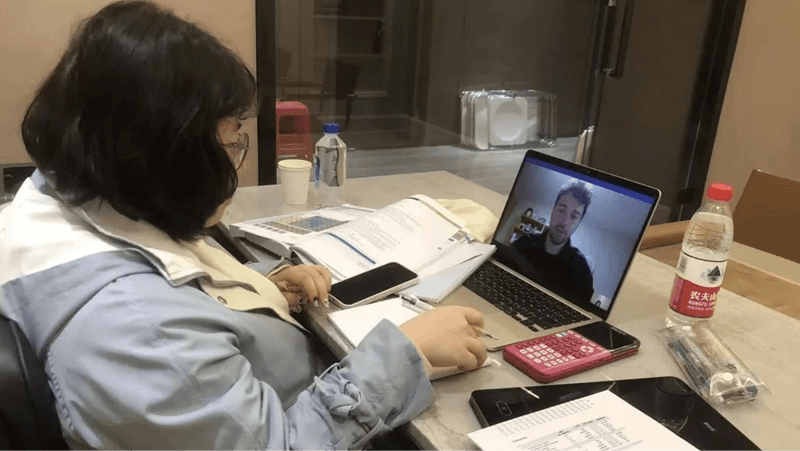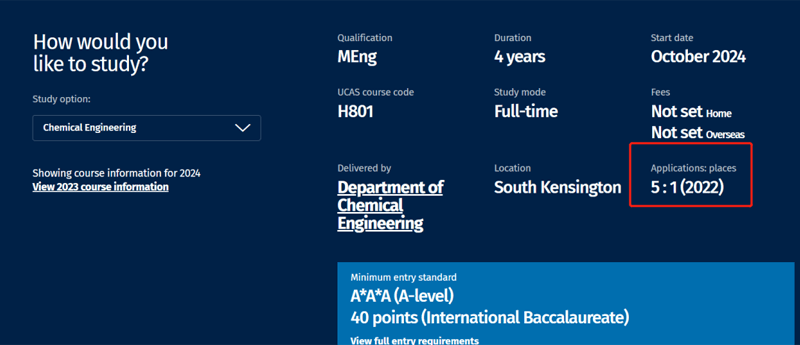
06 Apr 2023
Congratulations to NBCK student Lu Siyu for being accepted into both the Chemical and Chemistry majors at Imperial College London. With her unwavering spirit and determination, she has achieved 5A * in the fiercely competitive G5 competition this year, and has broken through numerous obstacles on the path of studying abroad application. In the intense global interview at Imperial College London, she has successfully secured an admission offer. We always firmly believe that it is the down-to-earth realization of every ordinary small dream that has converged into the great ideal of IC realizing dreams today.

Looking back at the beginning, Si Si, like most students, stood at a fork in the road and made difficult choices. I still remember under the lights of the academic guidance office at that time, when Si Si and her teacher were drafting their academic plans, they only had unrealistic dreams about the University College London and Imperial College London as mentioned by their teacher. Nowadays, waiting for the invitation and admission notice to be announced in the early morning like a "lottery draw" every day for several months has become the most proficient operation. The original distant dream has also transformed from expectation to a solid joy tightly held in the palm of the hand. In the increasingly fierce competition for English undergraduate applications, Si Si and NBCK's team bravely broke through multiple barriers at Imperial College London and finally achieved a two-way journey with their dream school. So how can we truly showcase our best selves in front of top universities?

In the comprehensive evaluation process, Imperial College London will not only consider the applicant's academic performance, but also their other academic achievements, research experience, social practice experience, recommendation letters, and interview performance. To be very clear, Imperial College's core review criteria consist of two modules: academic performance and written interview scores.
Of course, this does not mean that the documents, recommendation letters, and extracurricular research mentioned earlier are not important. These are also included in the focus of the review process, as Imperial College London's official website clearly uses the term "rigid" to describe the applicant selection mechanism, meaning that all evidence available information will be used as the review qualification. Any materials submitted during the application process will become important reference materials. This is also the reason why the Promotion Office repeatedly screened Lucy's application materials to ensure the absolute advantage and value of the content.
According to the academic performance requirements for the Chemistry major at Imperial College London as shown in the figure below, the minimum admission score for this major is shown on the left and is not for reference (only for special students). The NBCK Admissions Office recommends that the average admission score from previous years be used as a reference for further adjustment, starting from A * A * A. But if only three subjects are filled in the education column of the UCAS system, I believe many applicants have already felt it this year, so they may not even be included in the interview invitation. Under the initial application plan given by the promotion supervisor, Lucy's efforts were not only summarized by countless days and nights of hard work, but also by achieving five A * grades, which became the academic foundation for her to surpass most competitors in the invitation round. That is to say, if we only refer to the most basic admission requirements as a prerequisite for application, we are likely to fall into the sand before dawn.

Imperial College London has transparent and detailed requirements for subject combinations. Usually, the basic requirements for a major include mathematics, with the second subject being the core course of the major, and the third subject being selected from advantageous disciplines such as science or economics. Applications for "water courses" such as General Studies and Critical Thinking are never accepted, and this requirement is extremely strict. If chemistry is the target major for application, then chemistry, mathematics, and physics courses are very important. Taking the application course submitted by UIA A-level student Lu Siyu as an example, in addition to the above-mentioned subjects, high value subjects such as economics and advanced mathematics are also included. For example, for applications in related majors such as engineering or computer science, studying mathematics and physics courses is essential.

For top universities such as Imperial College London, application preparation needs to be done at least one year in advance, and one of the reasons is the self recruitment and interview preparation for professional adaptability. For example, this year NBCK students have participated in both group and individual entrance exams for the Materials major. The Physics major had a globally unified entrance exam for the Physics direction arranged on February 8th this year, while the Chemistry direction (including Chemistry and Chemical Engineering) had rotating interviews. The Geography direction had a rolling interview lasting four months, and the Mathematics direction required candidates to send their MAT/STEP scores in advance. In general, for applicants who can pass the subject review, the interview is more like a final confirmation of the applicant's compatibility with the department, and it is crucial to prepare in advance.
As mentioned earlier, Lucy's application includes two majors from Imperial College London, which can be said to be a double application, double invitation, and double admission, quite satisfactory. The above section mainly focuses on the application for the direction of the Chemistry major, while another offer for the Chemical Engineering major is already quite scarce, especially with high value. It is not difficult to see from the side that ATAS (Academic Technology Approval Scheme) is required. Unlike regular majors such as Civil Engineering, the chemical engineering major in IC requires ATAS. Here, I would like to talk to you in depth, which can inspire G5ers who pursue engineering at Imperial College London in the future.

Firstly, applying for engineering programs at Imperial College London can be quite challenging, as the analysis of admission rates alone is too one-sided. Engineering subjects tend to be more detailed when applied to international students, and even intentionally raise implicit requirements. Therefore, for Chinese students, most of the interview invitations for chemical engineering with an admission rate of 5:1 announced on the official website are not available and often end up as unsuccessful.
And for non UK local students who receive engineering offers, lucky ones also face "political and ideological scrutiny", including the ATAS mentioned earlier. ATAS is a regulation established by the UK government to protect national interests and security, aimed at preventing those who intentionally or unintentionally harm national interests and security from entering the UK to participate in related research and studies. Therefore, when applying for certain majors such as engineering, computer science, and mathematics, ATAS certification is required to obtain a visa. The filling of ATAS consists of 10 parts, including 3 statement sections. Especially when explaining the reasons for choosing this major, extra caution should be taken, as if the ATAS application is rejected, the success rate of reapplication will sharply decrease, which can be referred to in the case of US visas.